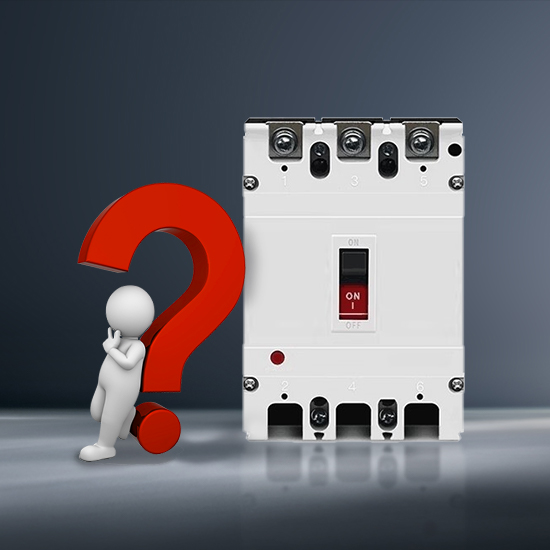How to Choose DC Circuit Breaker?
DC circuit breaker is one kind of power equipment. It has the advantages of small size, light weight, easy operation, etc. It is widely used in power distribution lines. Selecting the right DC circuit breaker is crucial for ensuring the safety and efficiency of electrical systems. DC (Direct Current) circuits require specialized circuit breakers to protect against overloads and faults. In this article, we will explore key considerations to guide you in choosing the most suitable DC circuit breaker for your application.

- Understanding DC Circuit Characteristics. DC circuits differ from AC (Alternating Current) circuits in their continuous flow of electric charge in a single direction. DC circuit breakers must, therefore, be designed to handle the unique characteristics of direct current, such as potential for sustained arcing. Unlike AC, where current naturally passes through zero during each cycle, DC circuits maintain a constant flow, posing challenges for interruption.
- Voltage Rating. Begin by identifying the voltage requirements of your DC system. DC circuit breakers are available in various voltage ratings, and selecting one that matches or exceeds your system voltage is critical. Ensure that the chosen circuit breaker can effectively handle the maximum voltage levels of your DC application to prevent breakdowns and ensure safety.
- Current Rating. Consider the maximum current that your DC circuit will experience. The circuit breaker's current rating should be equal to or greater than the maximum current expected in the system. This ensures that the circuit breaker can effectively interrupt the flow of current during overloads or faults without causing damage to itself.
- Interrupting Capacity. The interrupting capacity of a circuit breaker indicates its ability to safely interrupt the flow of current under fault conditions. It is essential to choose a DC circuit breaker with an interrupting capacity suitable for your application. This prevents dangerous situations where the circuit breaker may fail to interrupt the fault current, leading to equipment damage or safety hazards.
- Polarity. DC circuit breakers are designed for specific polarities, either unipolar or bipolar. Unipolar circuit breakers are suitable for single-polarity DC systems, while bipolar circuit breakers are designed for systems with both positive and negative polarities. Ensure that the chosen circuit breaker aligns with the polarity requirements of your DC application.
- Speed of Operation. The speed at which a circuit breaker responds to a fault is crucial for protecting sensitive equipment and preventing damage. Choose a circuit breaker with the appropriate speed of operation for your application. Fast-acting circuit breakers are suitable for circuits with high fault currents, while slower options may be adequate for less critical applications.
- Environmental Considerations. Consider the environmental conditions in which the DC circuit breaker will operate. Factors such as temperature, humidity, and exposure to contaminants can impact the performance and lifespan of the circuit breaker. Select a breaker that meets or exceeds the environmental specifications of your application.
- Type of DC Circuit. Different DC circuits have distinct characteristics, such as steady-state and transient conditions. Select a circuit breaker designed to handle the specific conditions prevalent in your DC circuit, whether it involves motor control, power distribution, or renewable energy applications.
Choosing the right DC circuit breaker is a critical step in ensuring the safety and reliability of your electrical system. By considering factors such as voltage rating, current rating, interrupting capacity, polarity, speed of operation, environmental conditions, and the type of DC circuit, you can make an informed decision that aligns with the unique requirements of your application. Regular maintenance and compliance with safety standards further contribute to the longevity and effectiveness of the chosen DC circuit breaker in safeguarding your electrical infrastructure.

